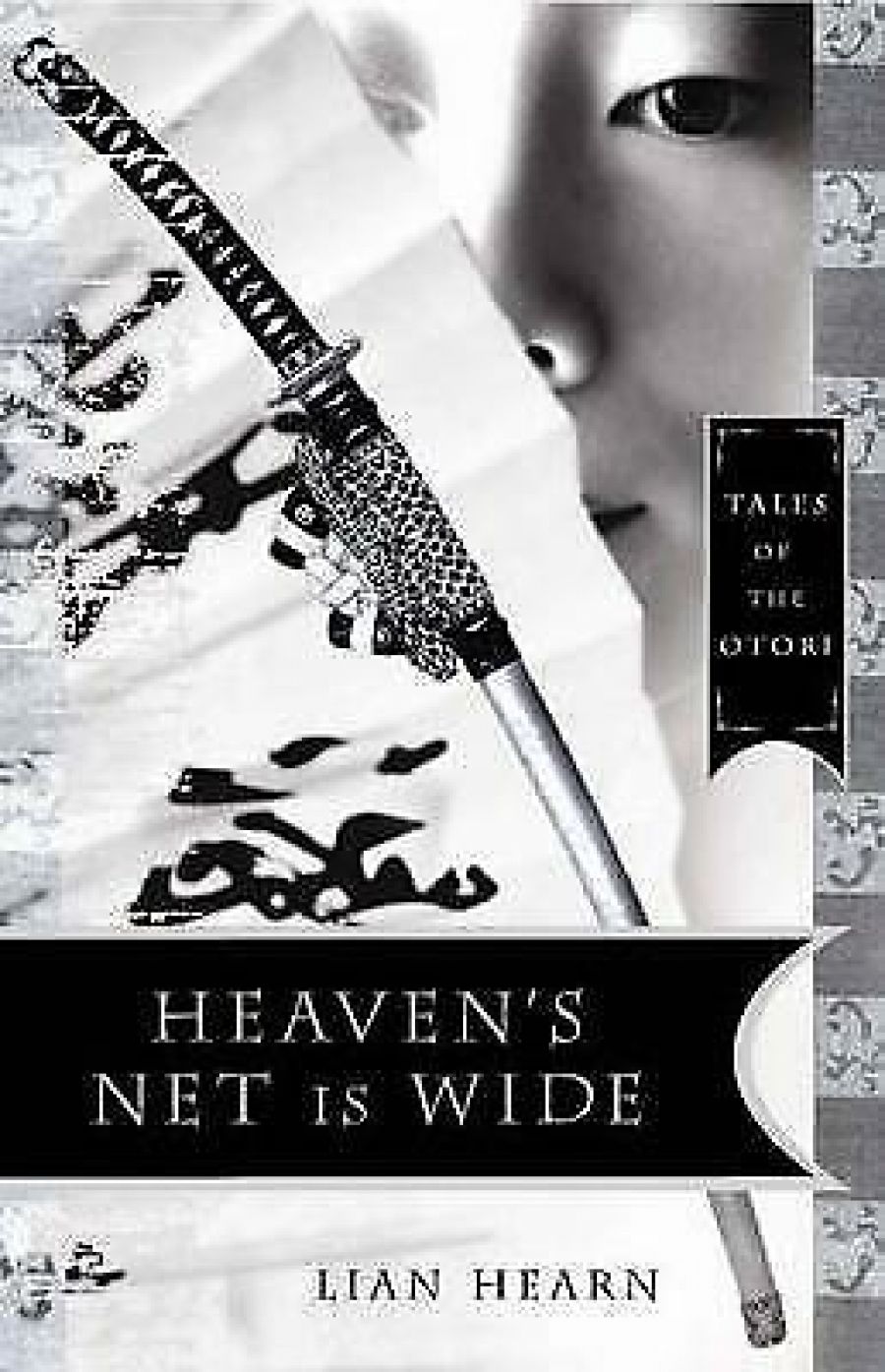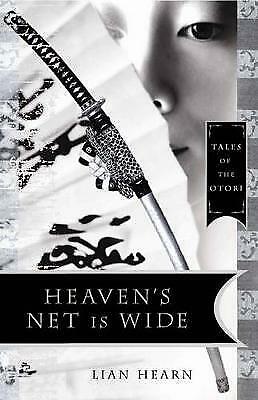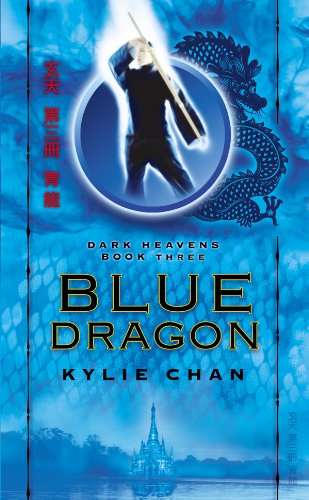
- Free Article: No
- Contents Category: Fiction
- Review Article: Yes
- Article Title: Martial arts
- Online Only: No
- Custom Highlight Text:
There has been talk recently about the loss of regionalism in Australian literature and culture, and about the decline of Australian literature generally, but these two novels suggest that not only is Australian fiction flourishing but it is finding new ways to engage with the cultures of the region. They represent innovative interactions between Australia and Asia, for a popular audience. - Book 1 Title: Heaven’s Net is Wide
- Book 1 Subtitle: Tales of the Otori, Book Five
- Book 1 Biblio: Hachette Livre, $39.95 hb, 641 pp
- Book 1 Cover Small (400 x 600):

- Book 1 Cover (800 x 1200):

- Book 2 Title: Blue Dragon
- Book 2 Subtitle: Dark Heavens: Book Three
- Book 2 Biblio: Voyager, $20.99 pb, 588 pp
- Book 2 Cover Small (400 x 600):

- Book 2 Cover (800 x 1200):

The Otori series is not quite an historical saga: it is an unabashed fantasy narrative inspired by a particular period of Japan’s history. Behind the honour-bound social code of the warrior class lies a profoundly supernatural Otherworld inhabited by the Tribe, a group of families who lease their dark services (including espionage and assassination) to the clans. The Tribe’s abilities are not quite magical but more of an extension of nature beyond its usual limits: these include unusually keen hearing and stealth, invisibility, the ability to split the self, and extraordinary martial arts. They are a fantasy version of the ninja who, like the warrior families, demand complete loyalty and self-sacrifice.
There are other correlations with Japanese history as well: the series narrates the shift away from violent feudalism and internecine war towards centralised government, peace and prosperity. Modern farming methods and increased trade bring greater engagement with the outside world. The novel also tells of the repression and growth of the Hidden, a new religious sect which obviously represents the coming of Christianity into Japan. The Hidden’s refusal to kill others or themselves, and their unconditional loyalty to a divine power higher than their feudal lords, bring the traditional and modern worlds into fierce conflict. This is central to the dramatic action of the entire series.
Heaven’s Net Is Wide is a seamless end, and beginning, to a superbly crafted narrative which sits comfortably in the strong tradition of fantasy/historical sagas. It is deeply satisfying for readers who have enjoyed the previous novels. Although it is undoubtedly a fantasy novel, it is strongly based on history and represents a close engagement with, and respect for, Japan itself.
Kylie Chan’s Blue Dragon is also the end of a series: the Dark Heavens trilogy. The writing is not as well crafted as Hearn’s, but it becomes more assured throughout the trilogy. Blue Dragon achieves an uneasy balance between romance and action; the characters are likeable and emotionally engaging.
Like the Otori series, the Dark Heavens trilogy clearly depicts another place (in this case, contemporary Hong Kong). This engagement with culture is perhaps not quite as deft as Hearn’s: what Chan does is to appropriate figures from the cosmology of Chinese myth and to insert them into the life of an ordinary teacher of English in Hong Kong. Chan’s research is manifest: gods and demons are personified, given memories and character traits, and drawn into a world of action and drama. Another area where Chan shows her familiarity with Chinese culture is her knowledge of Chinese martial arts.
The first two novels of the series tell of the protagonist, Emma Donohoe, an Australian teaching English in Hong Kong who also works as a nanny for a wealthy businessman. As her affection for her charge grows, she also becomes attracted to the child’s father, John, who turns out to be Xuan Wu, the God of Martial Arts, among other things. Chan deploys a first-person narrative with surprising assurance: Emma’s voice is strong, and the limits of the technique create just enough suspense without becoming frustrating.
Blue Dragon opens with Emma trying to protect her parents from the knowledge of the supernatural and the actual attacks of monstrous demons. The novel proceeds to the central conflict of the series: a cosmic battle between gods and demons, and Emma’s attempts to wrestle with her new position as Dark Lady to the Emperor of the Northern Heavens. To this world she brings a particularly ‘Australian’ attitude: irreverent, personable, and informal. Her charm is always disarming.
Like any good fantasy, the strength of the Dark Heavens trilogy is that it uses the fantastic and otherworldly to reflect on issues in contemporary society. Emma and her family’s adjustment to the abnormality of her life reflects the culture shock of an Australian moving and adjusting to life in Hong Kong. The fading of John’s mortal incarnation is a metaphor for terminal disease, which is especially apparent in the need to protect his daughter, and prepare her for his departure. Like Hearn, Chan creates a world of fantasy which is separated from reality by a tissue.
These novels are highly readable and enjoyable, and round off their respective series comfortably. They achieve a narrative pace which alternates between high action and calm repose, and blend the generic conventions of adventure and romance to appeal to all readers. Most importantly, they use fiction to reflect an engagement with Asian cultures, which can be as intriguing as it is educational for Australian readers.


Comments powered by CComment